Peer counselors have never been more important as we entered 2025. For one thing, peer supporters have begun to receive profound respect because of their unique viewpoint that those with formal training rarely consider.
If you are thinking of going into this field or are considering expanding your training, here are the reasons behind the growing number of people seeking peer counselor certification and what it can do for you.
Peer Support: The New Wave in Mental Health and Recovery
The stigma around mental health and addiction is slowly, albeit not fast enough, fading away, but, yet, there still exists an enormous necessity for genuine, practical support systems. This offered an excellent rubber for peer counseling to stand on because it focus on empathy through life experiences. They differentiate themselves from the classical disinterested technical knowledge offered by licensed therapists: peer counselors lean on their experiences of coping with mental health challenges and recovery from addiction themselves to assist others through navigating similar sets of troubles.
In 2025 more and more organizations and institutions are acknowledging the importance of peer support in both mental health and substance use recovery. Due to increased demand, such courses that grant certification to persons willing to undergo training in the capacity of peer counselors are becoming very popular today.
What Is Peer Counselor Certification?
It is a recognized credentialing process of an individual who has the ability to technically and practically provide support, guidance, and mentorship for other persons in need facing some kind of a mental health or addiction challenge. Unlike therapy, peer counseling training programs comes from a position of shared experience and mutual support.
Depending on the area of focus, many fields offer various certification programs, and many others may be regional or local. For example, the Peer Recovery Coach Certification focuses on equipping an individual with skills and knowledge to provide support clients in substance abuse, mental health difficulties, or trauma.
Why the Peer Counselor Certification Is Now Gaining Popularity
1. Half a Dozen Good Reasons for Peer Support
Historically, mental health and addiction were poorly conceived, and for a while, peer support did not exist. These days, more and more patients are getting into peer recovery: sad people sometimes prefer to tell someone who has been there about their troubles.
Acknowledging the increase in the number of people seeking peer recovery coaches and peer counselors for assistance, certification programs are, of course, becoming a popular career.
2. A Valuable Career Path With Purpose
Those individuals blessed with beauty in their troubled past with overcoming mental health challenges or addiction would feel such a rewarding peer counselor service. Peer counselor Certification offers the chance to transform their struggles and experiences into a professional career in assisting others through similar issues. Peer counselors are also able to demonstrate to others that they are capable of recovery and healing.
3. The programs for training peer coaches are on the rise
While many are considering peer counselor certification, enriching one’s skill sets through peer coach training is another alternative. Peer coaching is a structure that provides individuals with the knowledge and techniques to coach and support others. It concentrates on instilling core coaching skills: listening, questioning, and goal setting; these are essential for a peer counselor working with clients in recovery.
The Peer Coach Academy is just one example of an educational program that teaches people to be effective peer coaches. These academies teach students the basics and hands-on experience, and they learn how to empower others to set and accomplish goals, become self-aware, and remain on track throughout their recovery process.
4. Recognition and Credibility
Obtaining peer recovery coach certification or peer counselor certification not only validates your education but also widens the path for more opportunities for employment within the behavioral health profession. Employers tend to prefer certified staff since they know they are hired personnel who meet professional standards and are capable of offering quality service to clients.
5. A fulfilling career with adaptable options
Peer counsellors can work in a variety of settings, including schools, community agencies, mental health clinics, and addiction treatment facilities. Peer counsellors can also work in private practice, offering in-person or remote support services, giving them the flexibility to work around their preferences and lifestyle. People who wish to work full-time or part-time have flexibility thanks to the increasing demand for peer support positions.

Peer Counselor Certification Programs to Consider
If you’re prepared to seek peer counselor certification in 2025, a number of certification programs can assist you in getting underway. Well-liked options include:
- Certified Peer Recovery Coach (CPRC): This certification is well known within the recovery community and centers around supporting individuals through the process of overcoming addiction.
- Peer Coach Academy Courses: For people interested in being peer coach-trained, the Peer Coach Academy has courses that discuss coaching principles, leadership, and ethical issues. The courses equip people to be professional peer coaches and provide a more extensive set of skills that’s useful both at home and at work.
- State-Specific Certifications for Peer Counselors: Most states of the U.S. have certification programs for peer counselors that respond to their immediate needs. Those certifications are normally associated with mental health and addiction recovery programs such that the peer counselors are knowledgeable about the respective skills required to address their regions’ needs.
How to Get Started
If you have decided to cross the bridge and become a certified peer counselor, the following tips will guide you to get moving:
- Research Available Programs: Look into different programs, such as peer coach training or peer recovery coach certification, to find one that fits your goals and interests. Make sure to check the eligibility requirements, costs, and duration of the programs.
- Enroll in a Training Program: Choose a program that provides the necessary certification upon completion. Consider a program that also offers hands-on training, workshops, or practicum hours to build practical skills.
- Gain Experience: Most programs demand that you have personal experience with recovery or mental health issues. Utilize your lived experience to assist others and gain real-world experience in the field.
- Stay Informed and Continue Learning: As the field of behavioral health continues to evolve, it is essential to keep current with new trends in peer counseling and recovery coaching. Continuing education and higher-level certifications will keep you on the leading edge of the profession.
Conclusion
A cultural shift toward recognizing the value of lived experience and peer support in mental health and addiction recovery is reflected in the rising demand for peer counselor certification. More and more people are seizing the opportunity to use their personal experiences to build a fulfilling and purposeful career as peer recovery coach certification and training gain popularity. Be a part of a revolutionary shift in the behavioral health industry by becoming a certified peer counselor in 2025 if you’re prepared to assist others in their healing.
